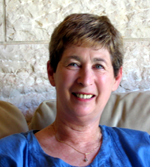By Dorothea Shefer-Vanson

TEL AVIV–Going to gala concerts isn’t really our thing, but when the Israel Philharmonic Orchestra announced that in honor of its return to the refurbished Heichal Hatarbut (Palace of Culture), its home in Tel Aviv, it would be performing Mahler’s fifth symphony, along with Beethoven’s violin concerto (with Itzhak Perlman as soloist) and a piece by Israeli composer, Noam Sheriff, Yigal and I couldn’t resist the temptation. As it happens, we are both inordinately fond of Mahler, and we’re not averse to Beethoven, either.
The main object of the three-year renovation of the building, both the interior and the exterior, was to improve the acoustics. As Tel-Aviv Mayor Ron Huldai said in his opening address: “One day Maestro Mehta came to my office and said: ‘The Accoustica is Balagan, the Heichal needs Shiputz,’” (the acoustics are lousy, the hall needs renovation).
The tickets were pricey, even though we took the cheapest, and the evening threatened to be a long one, as the concert was held on Saturday night and only started at 9 p.m. We were also warned by email to come as early as possible, as the concert was scheduled to be broadcast live on Israel radio as well as on the Mezzo television channel. We anyway generally try to get to concerts in Tel Aviv early, as otherwise we have trouble parking.
Everything worked according to plan, and in fact we were at the hall before the doors were opened, so that we couldn’t even pick our tickets up from the booking office. Never mind, that gave us time to stroll along the wide Ben Yehuda Boulevard and even get a bite to eat at one of the restaurants there.
Making our leisurely way back to Heichal Hatarbut we encountered a veritable happening taking place on the enormous plaza in front of the building. In the balmy Mediterranean air, large numbers of children – not teenagers – some on bicycles, some on roller-blades, two-wheelers, or other forms of wheeled transport, were whizzing about, some watched over by parents, others seemingly alone and unsupervised. One young man of perhaps eight or nine came crashing down as he passed us, but got up with a smile and continued on his speedy way.
Eventually we made it to the interior of the building, and immediately found ourselves in a very different world. Men in suits, some even with ties, one or two even sporting a bow-tie, were gathering, greeting one another, sipping coffee or tea at tables, and generally enjoying the ambiance of the place. They were accompanied – and even outnumbered – by women who were all dressed in their Tel Aviv best. Some were wearing elegant evening gowns, with jewellery to match, others in stylish suits or dresses – with many versions of the ‘little black dress’ on display. This was obviously ‘the scene’ for the culturati of Tel Aviv, and I felt a little bit awkward in my ‘little black trousers’ and Marks and Spencer’s jacket. Luckily for me, none of the other ladies present had stooped to M&S wear. There were plenty of familiar faces to be spotted — politicians, economists, industrialists, TV presenters, whose names I could recall only the next day.
And the music? It was divine. Perlman fiddled away for dear life, and gained a standing ovation. When he returned to the stage to take yet another bow he was astride his motorized buggy, and sped along the proscenium at top speed with Maestro Mehta running behind him, raising cheers and laughter from the adoring audience.
Actually, those two associates in music-making had managed to raise a laugh even before they began playing the Beethoven, as Mehta carried Perlman’s violin (a Stradivarius, I believe) onto the stage, walking behind him, because of Perlman’s disability (he had polio as a child). Once Perlman was seated, ready to play, he looked up at Mehta, Mehta looked down at him, and there was an expectant hush. Then Perlman made a gesture, as if saying ‘Nu, already,’ Mehta handed him the instrument and the music began.
And of course, Mahler’s fifth symphony thrilled us from its first golden trumpet tones to its final chord, with all the rich sounds produced by the orchestra in between, and especially the moving Adagietto, in which strings and harp combine in the touching love-song that Mahler wrote for his wife, Alma.
The concert ended and we wended our way home along Highway 1 towards Jerusalem, the music still ringing in our ears, our minds still in a state of bliss. As I fell into bed I was still hearing the music in my head.
*
Shefer-Vanson is a freelance writer and translator based in the Jerusalem suburb of Mevasseret Zion. She may be contacted via dorothea.shefer@sdjewishworld.com